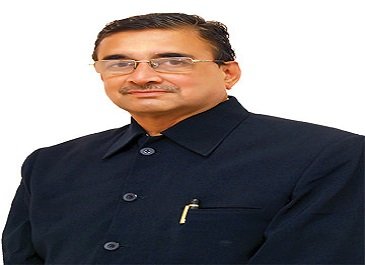Pre-Budget Expectation on Healthcare Sector
February 01, 2016 | Monday | Views | By BioSpectrum Bureau
Pre-Budget Expectation on Healthcare Sector
Mr Shrikant Soman (Photo courtesy: http://ehealth.eletsonline.com)
Distinction between charitable hospitals and corporate hospitals :
A distinction needs to be made between Charitable hospitals and Corporate hospitals for Income tax purpose. Charitable hospitals at present do not enjoy any special tax benefits. There are no special tax benefits, such as special subsidized rates for electricity charges or BMC Property Tax etc. Charitable hospitals are treated as commercial entity for all tax purposes, while at the same time Government expects charitable hospitals to give free treatment and concessional treatment to patients - 10 percent free treatment, 50 percent concessional treatment. This levies heavy burden on the management of the hospital. Further Government wants charitable hospitals to join RGY (Rajiv Gandhi Yojana) but does not want to give any tax breaks. Some additional tax breaks may be considered for charitable hospitals.
Service tax exemption :
Charitable hospitals do not have any setoff facility for VAT. So all VAT becomes fully payable. In case of manufacturing industry, the VAT gets set off against the purchase & against sales set off so that net tax burden is minimal.
Therefore it is suggested that Charitable Hospitals should have exemption from paying the service tax to service providers. At present, charitable hospitals are required to pay 14.5 percent which is very high. Currently, service tax of 14.5 percent is payable on following services provided to the hospital:
1. Housekeeping services
2. Man power supply services
3. Catering services, Patient food charges
4. Any legal & Professional charges
5. Telephone/mobile charges
6. Contractor's labour charges
7. Repairs/Renovation charges
8. Xerox copy charges
9. Insurance premium payable for general insurance
10. Any other similar services used by the hospital
It is recommended that charitable hospitals be given exemption from paying above service tax of 14.5 percent on the above mentioned services.
Mediclaim deduction under Income Tax :
Presently, the medical expenses have increased substantially. Therefore Mediclaim benefits for Tax break should be increased substantially.
At present, following deductions are allowed under Income Tax:
Health Insurance Premium
1. For Income Tax Deduction U/s. 80D Rs 25,000 and for parents Rs 25,000.
2. If both individual and parents above 60 yrs. then deduction available Rs 30,000+Rs 30,000 =Rs60,000.
3. Preventive Health Checkup deduction upto Rs. 5,000 which is not in addition to above.
Medical expenses
1. Individuals below 80 years- Nil
2. Individuals above 80 years-Rs. 30,000.
These exemption limits are extremely low, given the current cost of healthcare in the country.
In case of health insurance premium, the limit should be increased to at least Rs 1 lac for individuals and parents below 60 years( category 1 above- increased from current Rs 25,000) and Rs 2 lacs for individuals and parents above 60 years(Category 2 above-Increased from current Rs 30,000 )
In case of exemption under medical expenses, Rs 3 lacs for individuals below 60 years be allowed (increased from Nil at present)and the limit should be increased to minimum Rs 5 lacs for all senior citizens instead of super senior citizens (increased from Rs. 30,000 only for super senior citizens i.e.
The tax exemption on Preventive Health checkup should be raised from the current Rs. 5000/- to Rs. 15000/- under section 80-D of Income Tax Act 1961.
Indigent Patient Fund (IPF) under Scheme Framed by The Hon'ble High Court, Bombay in Writ Petition (PIL) no 3132/2004, dt. 17/8/2006:
At present, charitable hospitals under the above order are directed to set aside 2 percent of the hospital billing for treatment of indigent/weaker section of the society, for patient treatment only. Hospital should be allowed to use that IPF not just for patients but also for healthcare projects in rural areas or some poor areas like slum areas or in an approved project by the Government. Hospital may be allowed to adopt a municipal/government hospitals/ clinic and utilize this IPF of 2 percent of the hospital billing for managing these hospitals. It becomes more practical and will have much wider impact on the indigent and weaker section of the society at large.
Depreciation Rate:
Increase the depreciation rate applicable on medical and pathological equipment and medical devices from 15 percent to atleast 25 percent.
Capital Expenditure :
At present corporate income tax incentives is given on capital expenditure for hospitals with 100 beds and above, which needs to be revised for Greenfield Hospitals with 50 beds. This initiative will encourage set up of much-needed healthcare facilities in tier 2, 3 and 4 cities
Healthcare Infrastructure Fund and Medical Innovation Fund :
Govt. should set up a healthcare infrastructure fund and a medical innovation fund which would encourage entrepreneurship and newer business models which are the need of the hour for improving access, availability and quality, especially in tier 2, 3 and rural areas. Government can consider providing seed capital for such fund
Incentives for Additional Colleges :
Considering the huge demand and supply gap of doctors, health sector needs strong incentives to set up medical colleges. Free and concessional land in setting up private medical colleges will incentivize more players to get into medical education.
Import Duty on Life Saving Equipments :
Revisit the classification of life-saving equipment and provide import duty relief to other lifesaving equipment, not manufactured in India.









